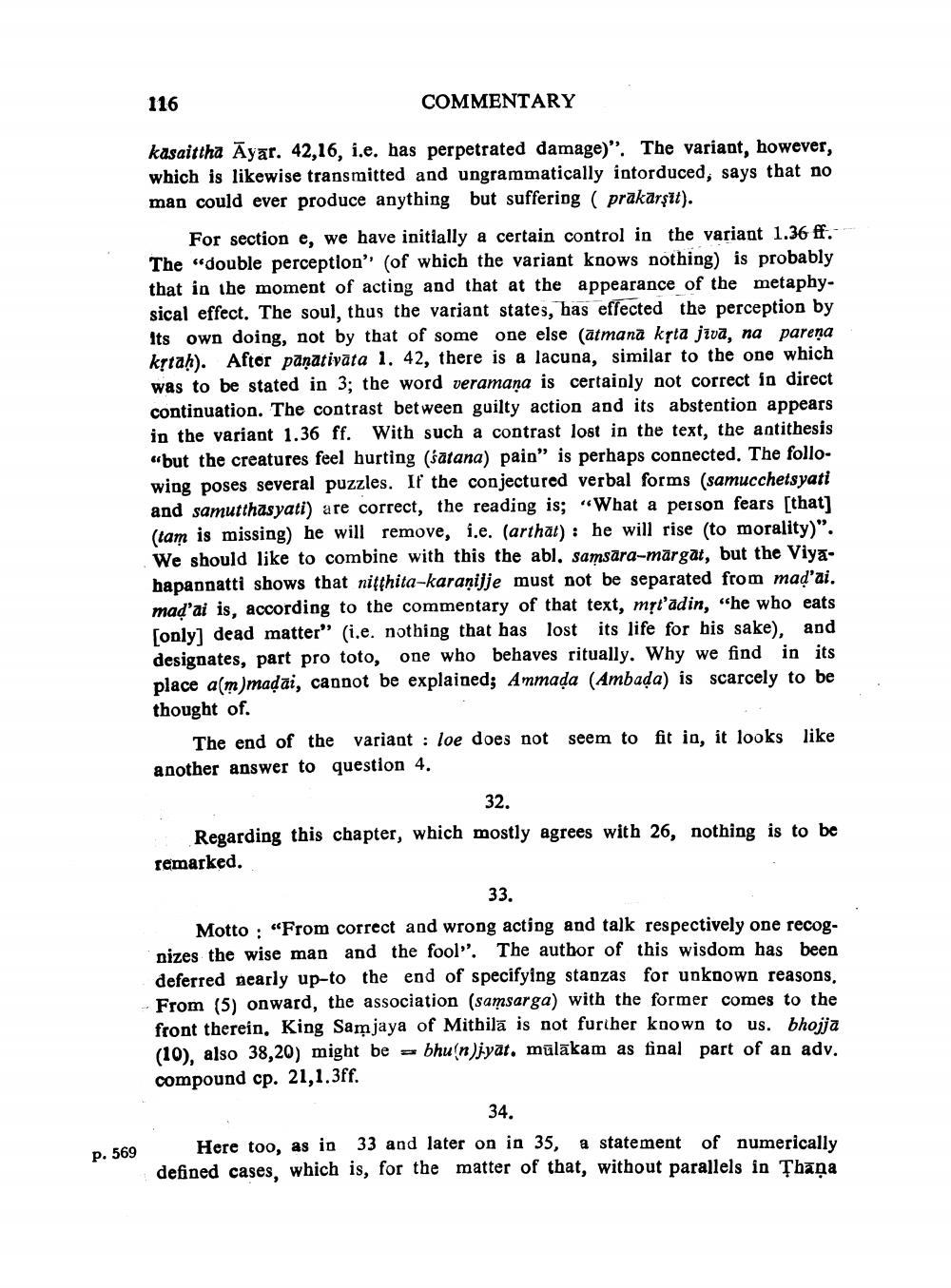________________
116
COMMENTARY
kasaittha Āyar. 42,16, i.e. has perpetrated damage)". The variant, however, which is likewise transmitted and ungrammatically intorduced, says that no man could ever produce anything but suffering ( prakārşīt).
For section e, we have initially a certain control in the variant 1.36 ff. The double perception" (of which the variant knows nothing) is probably that in the moment of acting and that at the appearance of the metaphysical effect. The soul, thus the variant states, has effected the perception by its own doing, not by that of some one else (ātmana kȚta jiva, na parena kȚtah). After pāņativāta 1. 42, there is a lacuna, similar to the one which was to be stated in 3; the word veramana is certainly not correct in direct continuation. The contrast between guilty action and its abstention appears in the variant 1.36 ff. With such a contrast lost in the text, the antithesis "but the creatures feel hurting (sātana) pain" is perhaps connected. The following poses several puzzles. If the conjectured verbal forms (samucchetsyati and samutthasyati) are correct, the reading is; “What a person fears [that] (tam is missing) he will remove, i.e. (arthat) : he will rise (to morality)". We should like to combine with this the abl, samsara-märgat, but the Viyahapannatti shows that nitfhita-karanijje must not be separated from maď'ai. maď'ai is, according to the commentary of that text, mộtādin, "he who eats [only] dead matter” (i.e. nothing that has lost its life for his sake), and designates, part pro toto, one who behaves ritually. Why we find in its place a(m)madai, cannot be explained; Ammada (Ambada) is scarcely to be thought of.
The end of the variant : loe does not seem to fit in, it looks like another answer to question 4.
32. Regarding this chapter, which mostly agrees with 26, nothing is to be remarked.
33. Motto: "From correct and wrong acting and talk respectively one recognizes the wise man and the fool”. The author of this wisdom has been deferred nearly up-to the end of specifying stanzas for unknown reasons, From (5) onward, the association (samsarga) with the former comes to the front therein, King Samjaya of Mitbilā is not further known to us. bhojja (10), also 38,20) might be bhu(n)jyat, mülākam as final part of an adv. compound cp. 21,1.3ff.
34.
p. 569
Here too, as in 33 and later on in 35, a statement of numerically defined cases, which is, for the matter of that, without parallels in Thana




